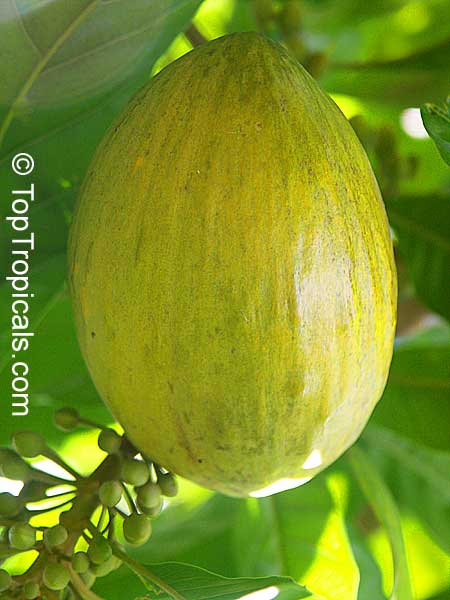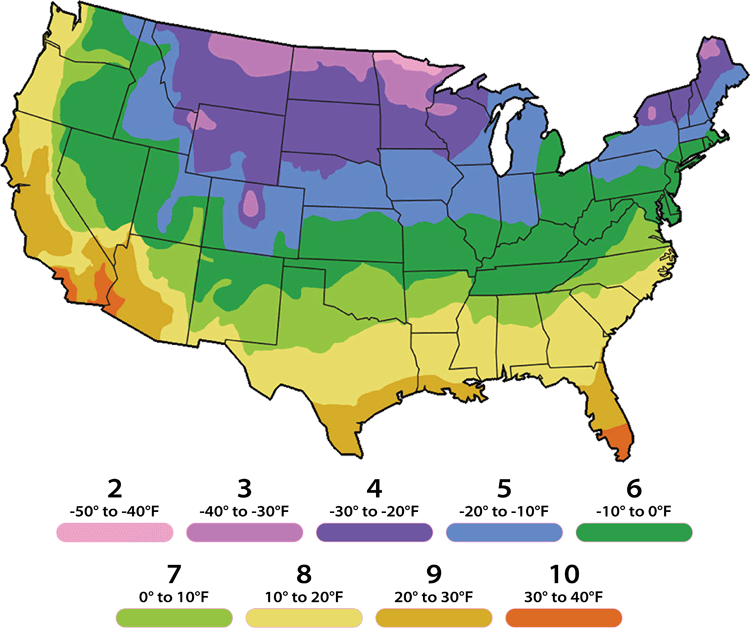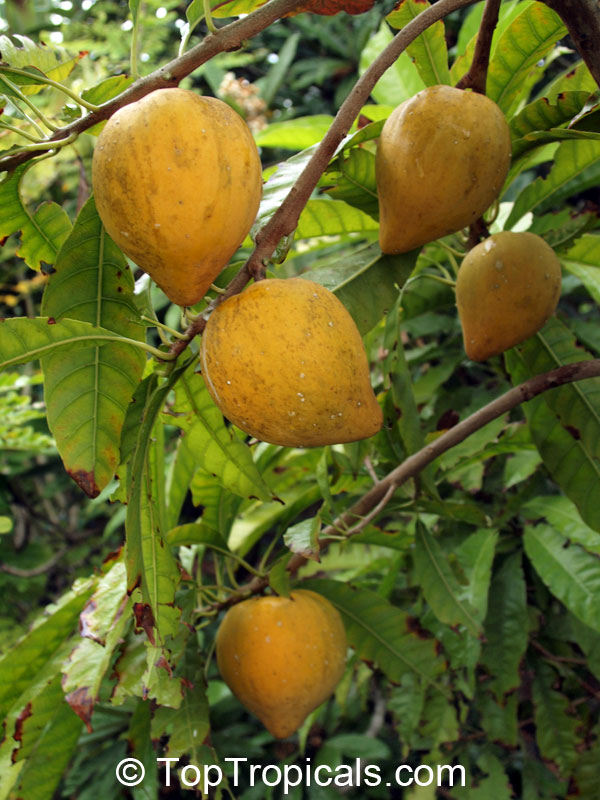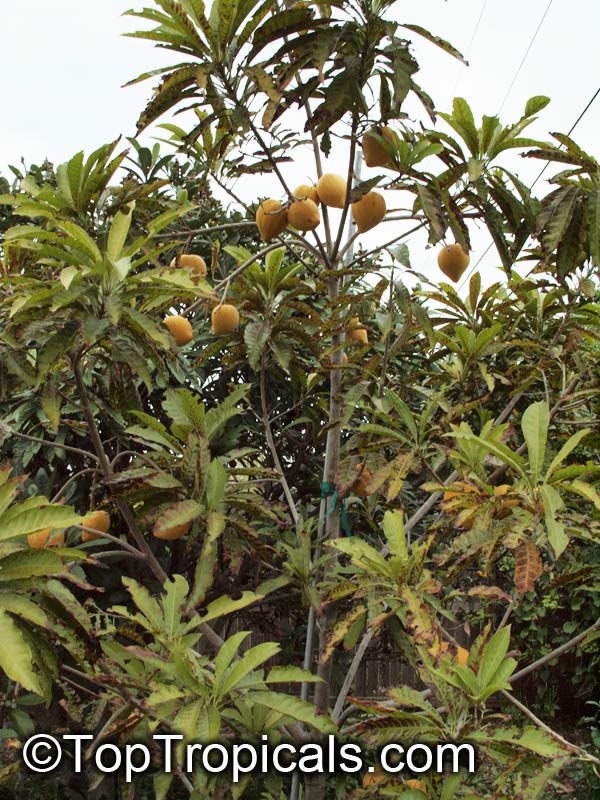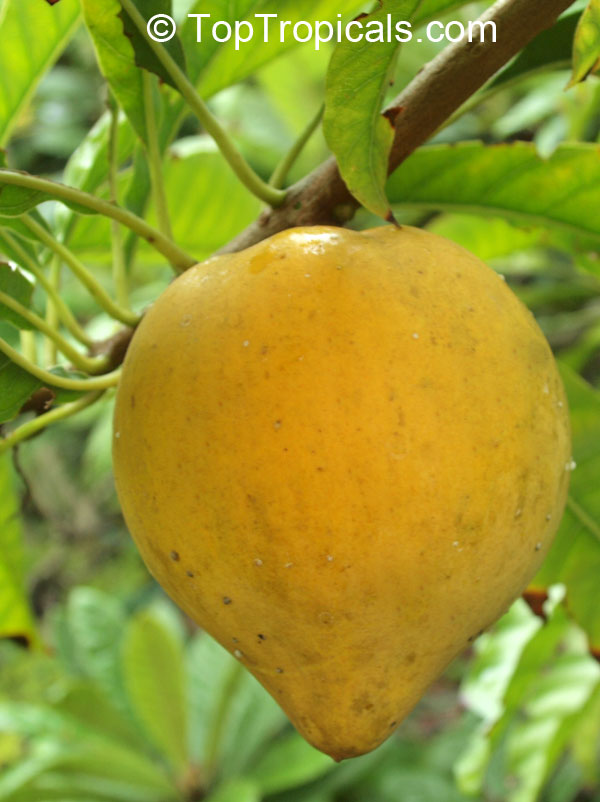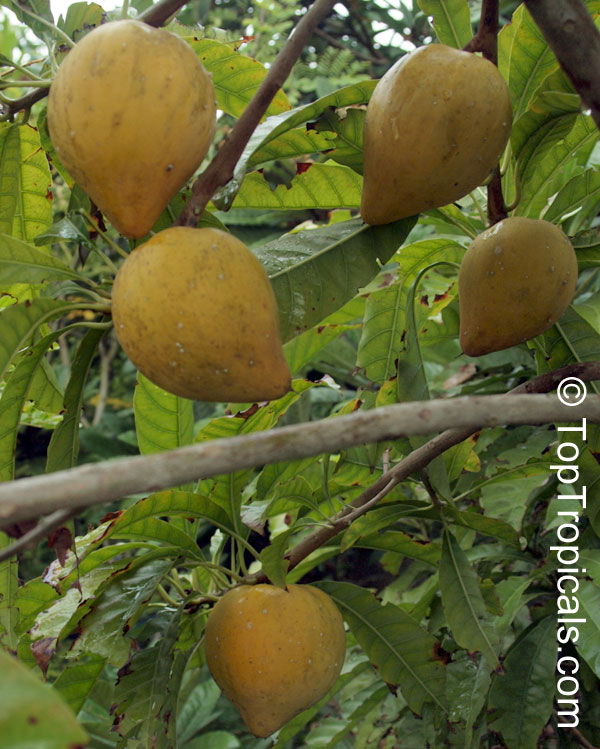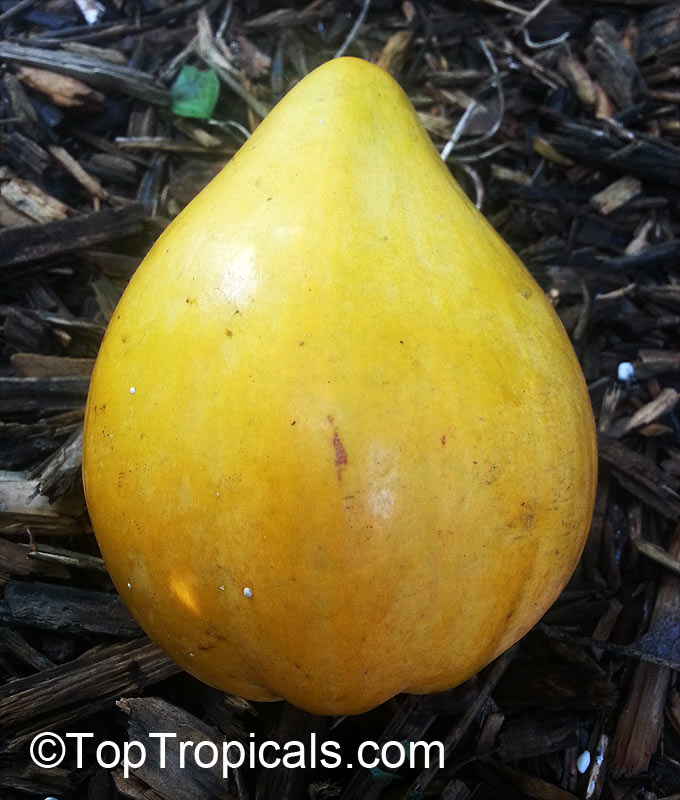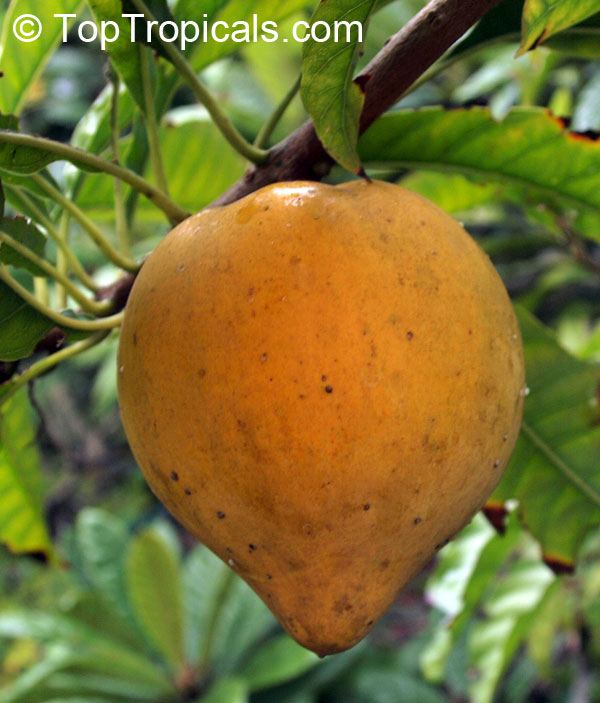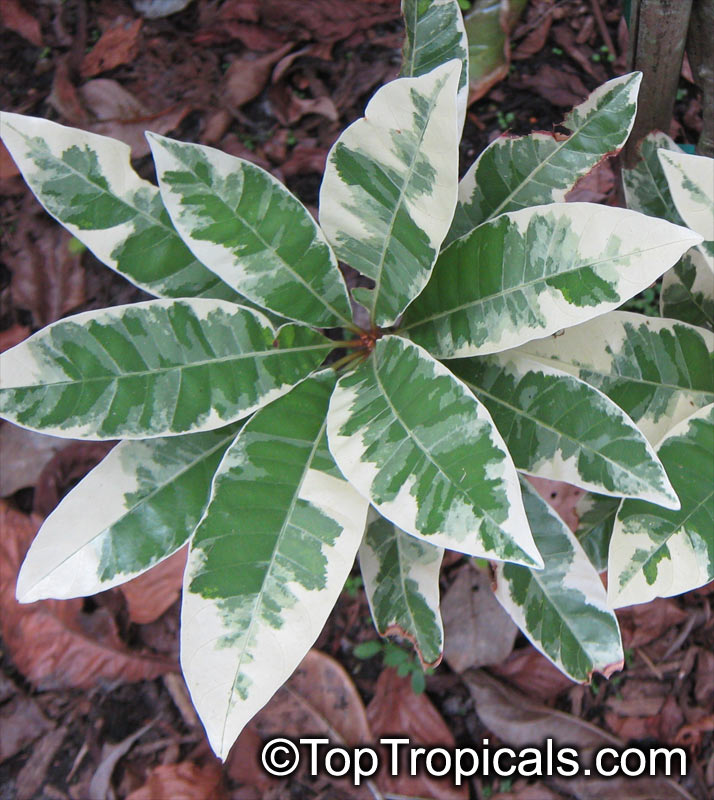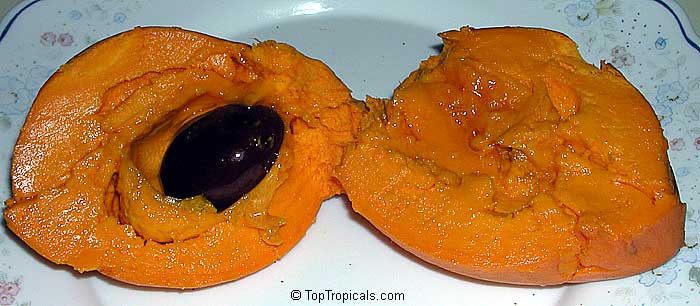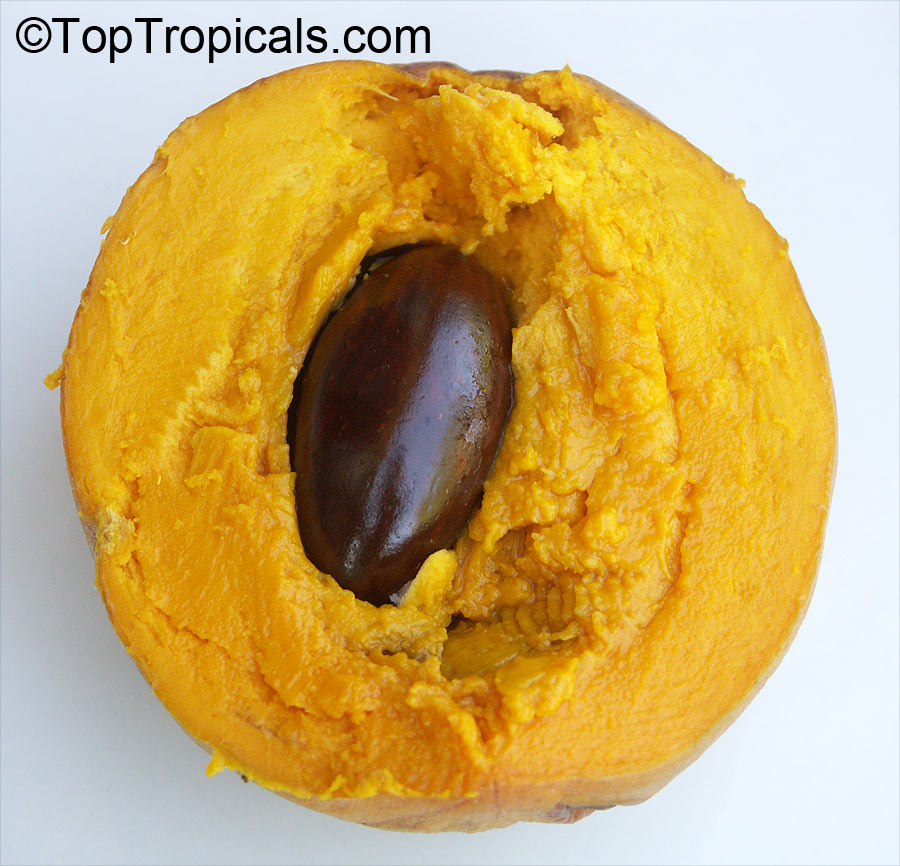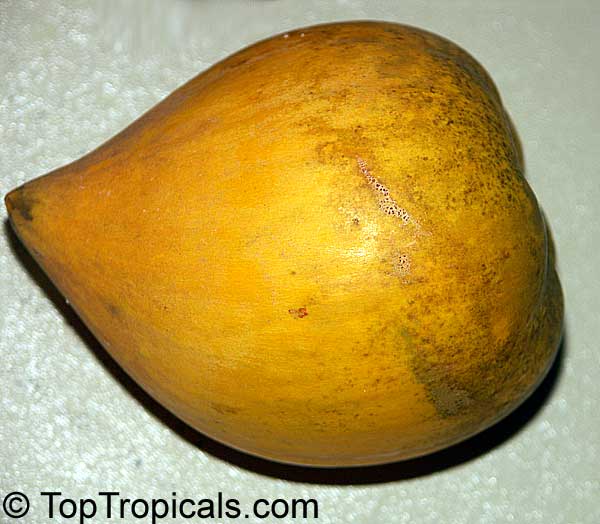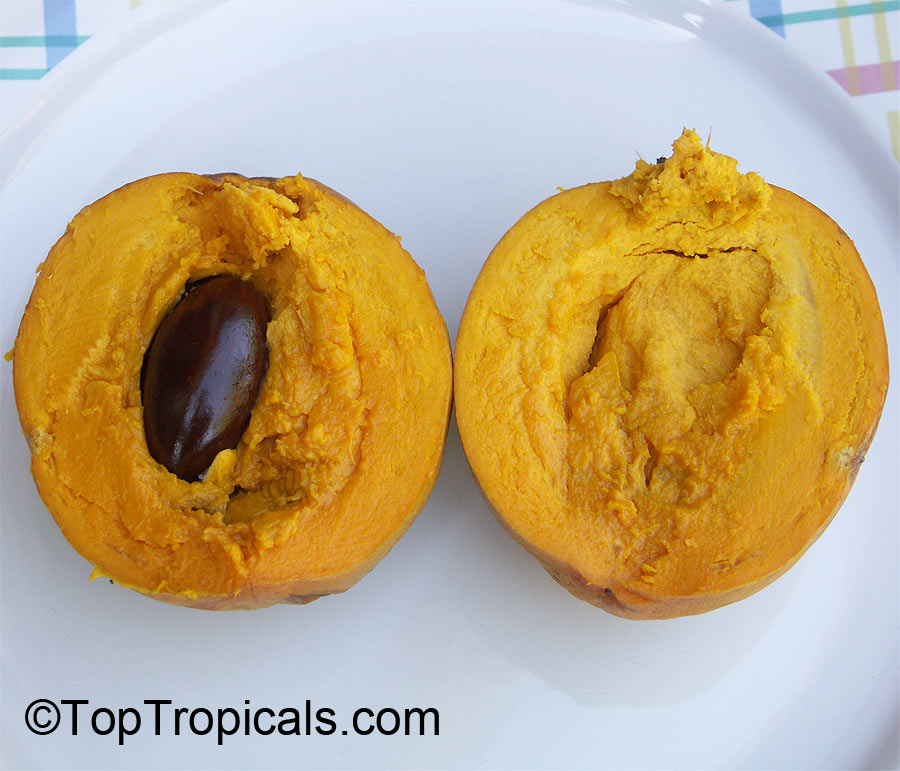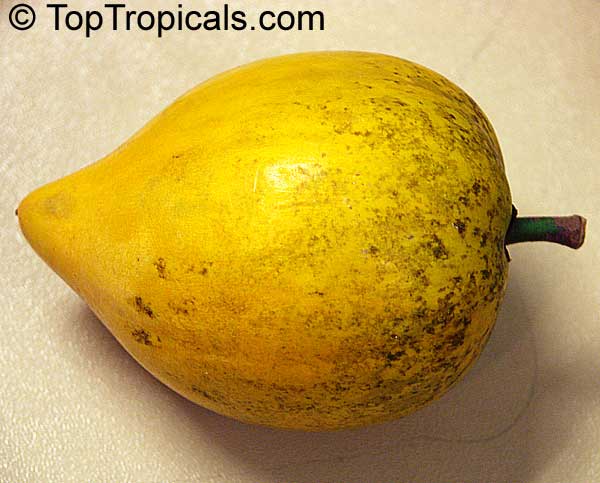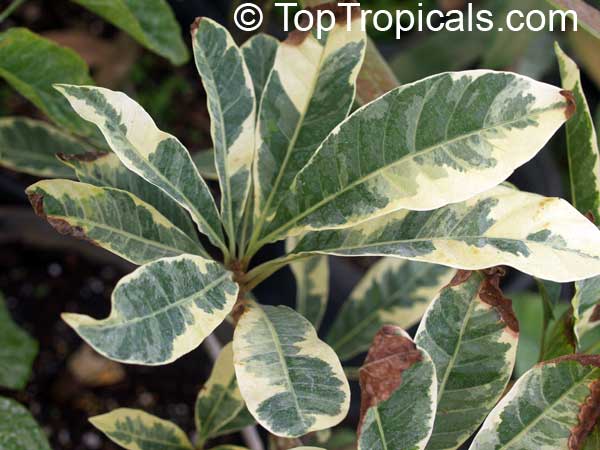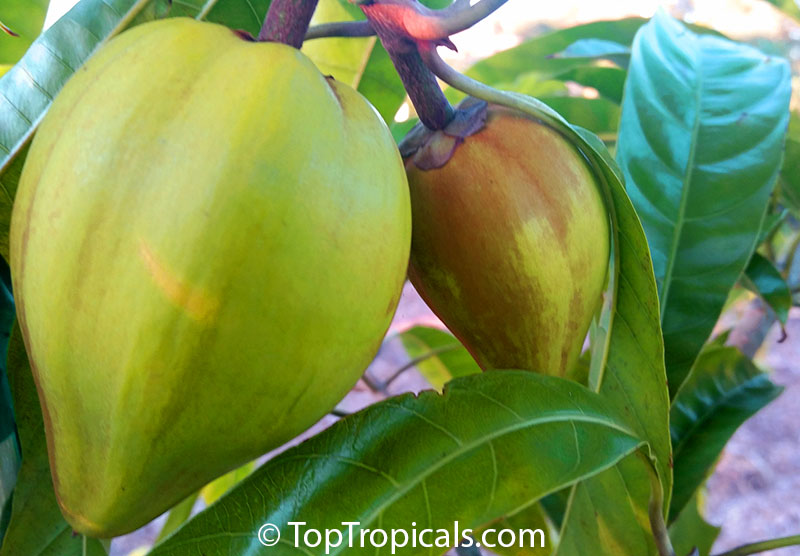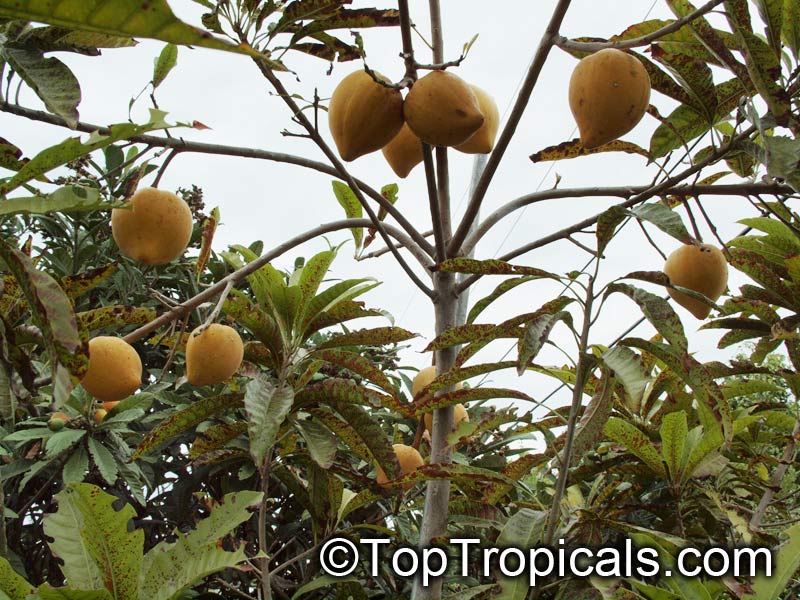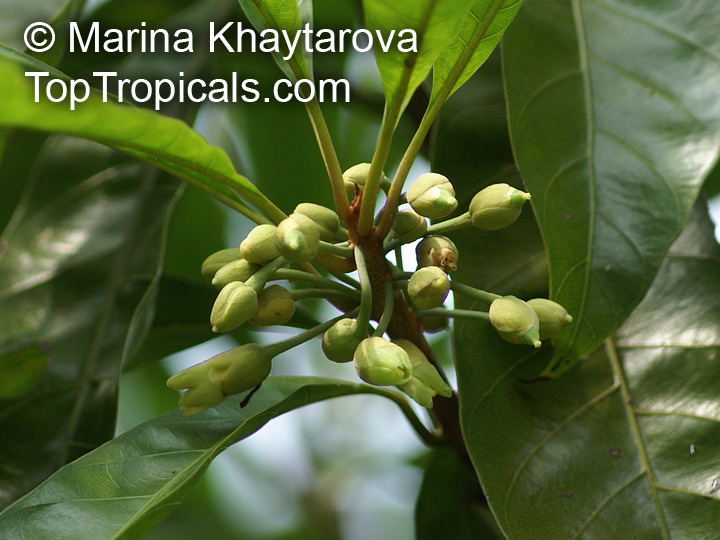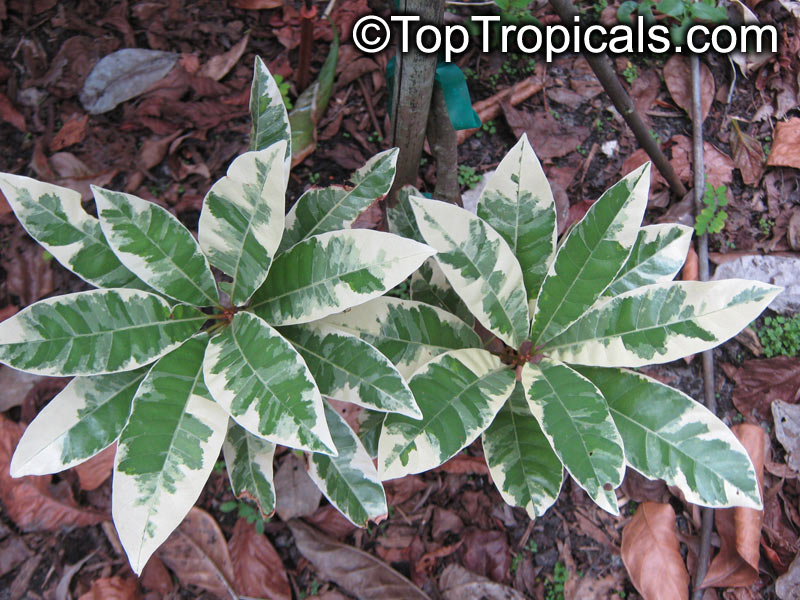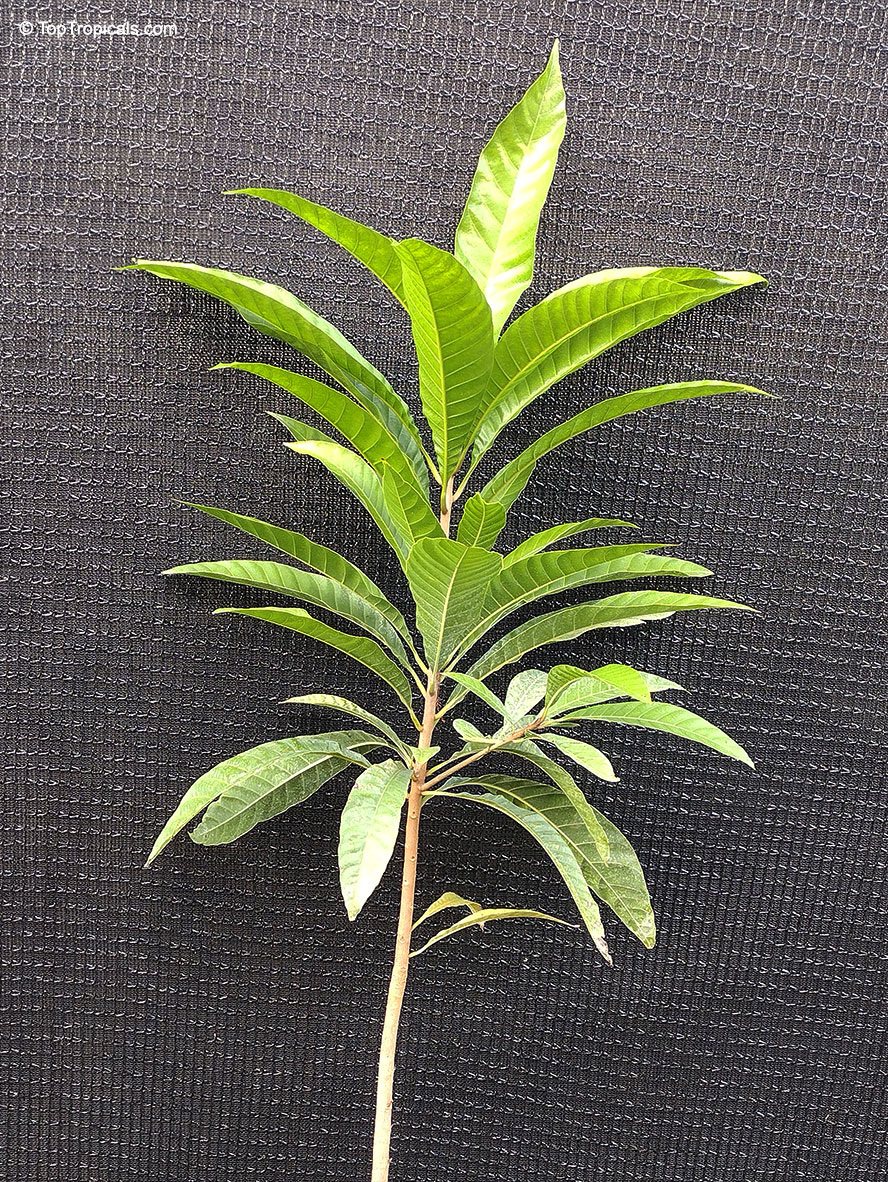Pouteria campechiana
Canistel, Eggfruit, ChesaFamily: Sapotaceae
Origin: Central America






This tree is native to Southern Mexico, Belize, Guatemala and El Salvador. During World War II, British pilots and crewmen were under training in the Bahamas, and showed great fondness for this special fruit, they bought all they could find in the market.
The tree is of medium size, generally no more than 25 ft, and slender in habit, with a dense spreading crown. The plant has abundant white, gummy latex. Fragrant, bisexual flowers are solitary or in small clusters, borne in the leaf axils or at leafless nodes.
Canistel is the showiest fruit of the family. Extremely variable in form and size, it may be nearly round, with or without a curved beak, or may be somewhat oval, spindle-shaped, or even heart-shaped. On ripening, the very smooth and glossy skin turns lemon-yellow or pale orange-yellow, Beneath the skin the yellow flesh is relatively firm and mealy. Toward the center of the fruit it is softer and more pasty. It has been often likened in texture to the yolk of a hard-boiled egg. The flavor is sweet, musky, and somewhat like that of a baked sweet potato.
The fruit can be eaten with salt, pepper and lime or lemon juice or mayonnaise, either fresh or after light baking. The pureed flesh may be used in custards or added to ice cream mix just before freezing. A rich milkshake, or "egg-fruit-nog", is made by combining ripe canistel pulp, milk, sugar, vanilla, nutmeg or other seasoning in a blender. Canistel pulp can be used as a spread on a toast, for making pancakes, cupcakes, jam, and marmalade.
Season: September - March. May fruit twice a year. Well adapted to South Florida. Eaten fresh, used in cooking, pies, excellent in ice cream. In a milk shake tastes like egg nog. Very similar in taste to Lucuma from Andean countries. This fruit taste is between Ciku and Camote (yam).
See Article about this plant:
Pouteria campechiana - Canistel, the curious heart-shaped Egg Super-Fruit.
Similar plants:
- Pouteria caimito (Abiu, Abu, Caimito)
- Pouteria gardneriana, Pouteria suavis (Abuai, Aguay guazú)
- Pouteria hypoglauca (Cinnamon Apple )
- Pouteria multiflora (Broadleaved Lucuma, Chocky Apple, Jacana)
- Pouteria sapota (Mamey, Mamey Sapote)
- Pouteria sp. (Ross Sapote)
- Pouteria viridis, Calocarpum viride (Green Sapote)
Canistel, Eggfruit. Easy to grow, sweet exotic fruit.
Canistel (Eggfruit) - Nutritional Benefits and Uses
Canistel, commonly known as Eggfruit, is a highly nutritious tropical fruit native to Central America and now cultivated in many warm climates. Known for its bright yellow to orange flesh and smooth, custard-like texture, Canistel is not only delicious but also offers several nutritional advantages.
Rich in Beta-Carotene
One of the standout nutrients in Canistel is beta-carotene - a carotenoid that the body converts into vitamin A. This essential vitamin supports healthy vision, skin repair, and immune function. The deep orange color of the fruit signals its high carotenoid content, similar to that of carrots and sweet potatoes.
Good Source of Dietary Fiber
Canistel contains a generous amount of dietary fiber. Eating fiber-rich foods helps maintain digestive health, regulate blood sugar levels, and support a feeling of fullness - making Canistel a satisfying option for healthy snacking or meal additions.
Other Nutrients
In addition to vitamin A precursors, Canistel provides small amounts of vitamin C and several B vitamins such as niacin (B3), which contribute to metabolism and skin health. It also offers trace minerals like calcium, phosphorus, and iron.
Culinary Uses
The rich, sweet, and slightly eggy flavor of Canistel makes it ideal for smoothies, custards, pies, pancakes, and ice cream. It is often blended into milkshakes or used as a thickener in vegan desserts due to its naturally creamy consistency.
While Canistel is lesser-known compared to other tropical fruits, it is gaining popularity for its unique taste and health-supporting nutrients. Whether enjoyed fresh or blended into a nutritious dish, Canistel is a rewarding addition to any tropical fruit lover's diet.
Recommended Fertilizer: SUNSHINE C-Cibus - Crop Nutrition Booster
SUNSHINE-Honey - sugar booster
Last one
Recommended Fertilizer: SUNSHINE C-Cibus - Crop Nutrition Booster
SUNSHINE-Honey - sugar booster
Recommended Fertilizer: SUNSHINE C-Cibus - Crop Nutrition Booster
SUNSHINE-Honey - sugar booster
